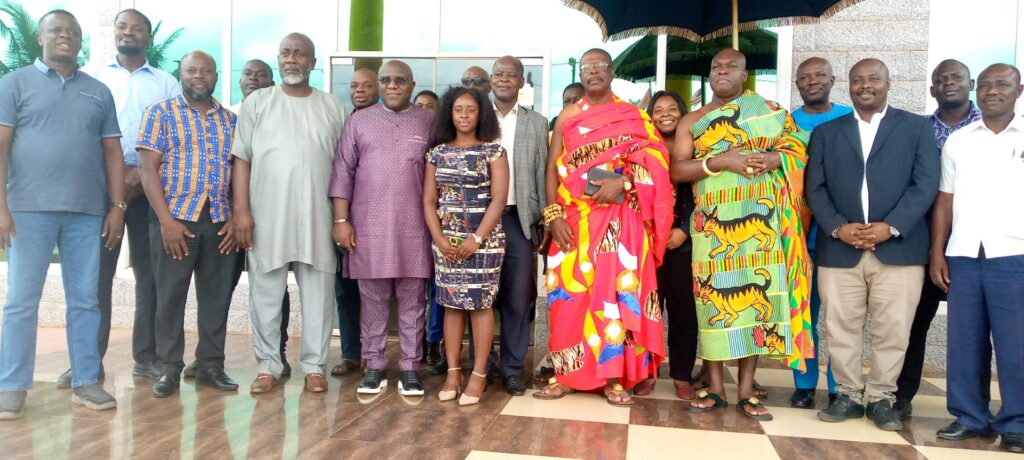GHEITI disseminates 2020 reports on mining, oil, and gas sectors
 The Ghana Extractive Industry Transparency Initiative (GHEITI) has organised a workshop to raise public awareness about its 2020 mining, oil, and gas reports, which consist of a diverse array of observations and recommendations.
The Ghana Extractive Industry Transparency Initiative (GHEITI) has organised a workshop to raise public awareness about its 2020 mining, oil, and gas reports, which consist of a diverse array of observations and recommendations.
The Deutsche Gesellschaft für Internationale Zusammenarbeit (GIZ) and Ghana’s Ministry of Finance supported the workshop, which took place at New Abirem in the Birim North of the Eastern region.
Addressing participants, Mr Kwaku Boa-Amponsem, consultant to GHEITI, indicated that Section 6 of the Petroleum Revenue Management Act (PRMA) itemised revenue streams to be received into the Petroleum Holding Fund (PHF) but fails to mention bonuses by name as captured in the E&P Act, 2016 (Act 992).
“Although bonuses can be covered under 6(a) and 6(e) in the PRMA, they deserve a category mention, as even surface rental has relatively smaller amounts stated in the PRMA,” he said.
The Ghana Extractive Industries Transparency Initiative (GHEITI) has suggested that future amendments to the Petroleum Revenue Management Act (PRMA) should explicitly acknowledge bonuses as a source of revenue.
This recommendation aims to establish consistency between the E&P Act and the PRMA while also promoting transparency and accountability in the disclosure of these payments.
In the recently released 2020 report on the mining sector, Mr. Boa-Amponsem also highlighted a notable observation: the government did not specify the method it would employ to generate funds for the purchase of gold.
The report did not provide any details on whether the government intended to pursue loan syndication, central bank financing, or rely on government budgetary allocation.
It suggested that the government should focus on bolstering its gold reserves as a strategy to mitigate the effects of fluctuating gold prices.
The proposed approach entails accumulating gold during periods of low prices and selling it during periods of high prices.
Another observation made was that, owing to the informality of the artisanal and small-scale gold mining (ASM) sub-sector, it is difficult to determine the output of ASM.
So, the report suggested that the GHEITI and the GIZ should work together to come up with a formula for figuring out ASM gold output. This formula should be based on reported export volumes and local consumption.
It observed that exploration companies that do not intend to continue business and have assigned or disposed of their mineral rights could leave before submission of annual returns is due, thereby increasing the risk of tax loss. This results in a significant loss of revenue to the state because the gains from such assignments or disposals are never taxed.
It was recommended that tax returns on capital gains made from the assignment or disposal of interest in the mineral rights of a company should be submitted and taxes paid within 30 days after the assignment or disposal is made.
The EITI has emerged as a prominent global benchmark, evaluating the governance practices of economies heavily reliant on natural resources.
It aims to assess how effectively these countries manage their resource wealth, ensuring transparency and accountability processes.
Dr Steven Manteaw, Co-Chair of the Ghana EITI, said that Ghana signed the Initiative in 2003, and that transparency and accountability in the payments and revenues of the oil, gas, and mining sectors had improved.
According to him, significant progress has been achieved in decreasing the possibility of all kinds of corruption, improving the investment environment, enhancing government and business processes, and increasing tax mobilisation.
Source: GNA
